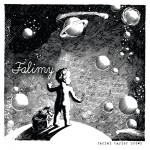What are words to describe Rachel Taylor Brown? Her cartoonly brawl? As seemingly congruent as that might appear on the surface, it is merely an anagram—despite its indisputable aptness: for which I take entire and complete credit. For Rachel Taylor Brown the cartoonly brawl is her everyday battle with you, me, us, them, this, that and anything in the equation I might be missing. Rachel is incredibly sensitive, and the presence of a city-like exterior world within the limits of her bucolic interior city is something she finds distinctly and quite uniquely disquieting. In a good way.

Rachel has been releasing an album every year or two for the past ten years. She first appeared on my radar screen in 2004 with Do Not Stare, an album that clearly introduced her quirky quirks: musical, lyrical and possibly psychological, though it’s certainly none of my business. I have, however, reviewed all or most of her six or eight (including one Christmas) albums over the years, though I’ll be damned if I can find a couple of them. Down the Buko magazine wormhole, I guess.
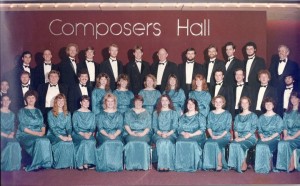
It was way back in ‘04 that we learned of Rachel’s considerable credentials. She has sung as a soprano soloist, and as an ensemble vocalist with the Portland Baroque Orchestra. She has performed as a back-up singer in the studio for dignitaries such as Foreigner and the Chieftains, among others. She’s worked as a DJ at KINK.
For that first (to us) album, Rachel played all the guitars. Here she plays all the keyboards. So it is readily apparent then that she is musically quite adept. In addition, taking her quirky quirks into deep consideration, she is a fine, if defiantly off-beat songwriter. Don’t listen to Rachel if you don’t want to think, because some of the things she will make you think can be at times troubling in a wholly organic way. I’m talking 21st century Bronte girls here. You can hear the wind sighing through the trees.
Want an indication of, a locus, for Rachel’s lyrical point of view? Here’s a cool little verse from Jonah Days back in 2005: “You know I never meant to maim—just scar for life/And though you never looked the same, I kept the knife/It’s kinda weird how a simple tool can make you cruel.” Brrr. Did it just get a little chilly in here?
 So we know what to expect from Ms. Taylor-Brown. She’s no punch-puller. Still, it must be said, that here her lyrical approach is a little more sensitive to the subject matter and not, perhaps, so obsessed with the gory, entrails. Here the focus is primarily on the family. The nuclear family.
So we know what to expect from Ms. Taylor-Brown. She’s no punch-puller. Still, it must be said, that here her lyrical approach is a little more sensitive to the subject matter and not, perhaps, so obsessed with the gory, entrails. Here the focus is primarily on the family. The nuclear family.
Yeah. Nuclear. It is obvious from the title of this album, that there may be aspects of our “falimy” in question that could be perceived as dysfunctional. But then, who are we to judge? And it wouldn’t be a Rachel Taylor-Brown album without at least a little dysfunction, at least on the peripheries.
The two songs to roll out this affair are two of the most poppy concoctions Rachel has ever formulated—and that is saying something, as her knack for the sharpened hook and the handsome turn has long been evident. But with “We’ll Have A” she outdoes herself.
First we have the “three to the floor” verses reminiscent of Regina Spektor—the chunky, Mccartney-esque drive of the piano, while Rachel coos a dove-like vocal. “There’s no one to comfort you, no one to care/There’s only this want and my pitiful share.”
Her answer to her own stated predicament is punctuated by a stirringly raucous, Gospel-tinged chorus belted out by a twenty-voice (at the minimum) choir. “So let’s have a family!/We’ll have a family.” Yeah. That’s the All-American answer for everything: a baby. Well, a baby and a gun, I guess. This is a formidable entry into the world Rachel intends to create. The intense sonic majesty of the vocal section is not something to have come out of Portland before. Not in a “rock” format anyway.

Now as we all know Athos was among the brutes—Gigantes—rowdy Greek lads born of the mother earth and father sky (you don’t want to know how), who challenged the authoritah of the pantheon of Olympians (the big name, major league gods). Athos happened to get pissed enough at Poseidon or whoever (records are not exactly clear about any of this) that he threw a mountain at him, which got batted down into the Aegean Sea. After kicking Athos’ ass, Poseidon went ahead and just buried Athos under his own damn mountain. Nuff said. Thank you very much!

Somebody, Homer? Ovid? One of those storytellers from antiquity decided to name the mountain after the guy buried underneath it, not the guy who batted it down, as you might expect. Reasoning was different back then, for better or worse.
As an example, some guy thought it would be a reasonable idea to carve the whole mountain into a bust of Alexander the Great after he died in Babylon. Later the Virgin Mary is supposed to have stopped by and, really loving the locale, asked her one and only boy to make the island her garden. There’s obviously a lot of argument over that point!

Speaking of which, and probably more to Rachel’s point, after the gods moved on to some other part of the sky, and all the appropriations for proper Christianity were made, Mount Athos subsequently became something of a high-end monastery of quite some repute. Vow of celibacy? Well of course! Price of entry.
So somewhere around the year 1000, somebody got the idea that the whole celibacy and the righteous spiritual path to Heaven thing would be a helluva lot easier if there were no women around to “tempt” the guys, or whatever. This has been a convenient male argument for a lot of stuff over the years, actually. And, humans being humans, there was an obvious fallacy in that plan anyway, of course, but hey, it was pretty much the Dark Ages. We know better now, eh?
Anyway, and this is a hell of a build-up, so it better be worth it—our point of departure for Rachel’s song “Mt. Athos,” is this: “For the lumbering beast of male spirituality in that neighborhood at that time it was deemed best, for all involved, that the girls should be considered to have cooties and banished from the mountain peninsula altogether. Sure, what could go wrong?

And, ostensibly, her song “Mt. Athos” quite accurately and succinctly describes that mindset. “I’m trying to get to heaven, but there’s a woman in the way/There’s a woman in the way of men on their way.” Those unfamiliar with her work might miss the incredible sarcasm Rachel brilliantly displays on many occasions. So her assessment is most likely much deeper than it might seem.
What exactly are we meant to take from this? Especially in the context of the previous song, which was all about having a baby to make up for other deficiencies in a relationship and life in general, etc? Well, apparently that plan didn’t work out. Uh-oh.

Now, as for the actual song presentation it is the rockiest thing I can ever remember her doing. Behind the insistent plinking of Rachel’s piano, guitarist Leigh Marble’s power chords grind through the song like Pete Townsend turned up to 11, while bassist Jeff Langston and drummer Liz Savage drive the song relentlessly forward. Yeah, just try to stop this Cootie girl!
The wordless bridge is magnificent, with its “oh-oo-oh” harmonied vocal lines and boisterous instrumental performance. This is two minutes and twenty seconds of pure rock confection with a lyrical theme so ambivalent as to divide the hemispheres of the brain into sugared walnut halves.
The intro to “Robin” is a piquant little thimblerig of a piece, whirling and spinning, resolving on a brief series of minor-key vocal scales against thick piano chords, before melting into the prettiest little song you’re ever gonna hear.
The mood is like the traditional lullaby “Hush, Little Baby.” “Sing little robin from your lonely tree/Make it pretty like you hear on Sunday/Sing little robin for only me/I love you, and we will leave here one day.” In the thematic scheme of things, it would seem little Baby Tuckoo has arrived and now our falimy is three, although seemingly all is not idyllic. Mister Mount Athos seems a tad absent from the bleak trailerpark landscape.
 Affixing a mood and sensibility analagous to Suzanne Vega’s “Luka” to the eerie “Trade,” Rachel steers the brittle piece with a stilted piano part, that sounds somehow wrong, though perfectly suited to the context of the song. The concise lyric, sung in a low, plain voice, very much like Vega’s, is bleakly stark: “I gave up my hands to save a girl on fire/So I can’t do most anything I’m meant to/I can’t hold a hammer like I used to/I can’t make a cradle or a chair/But I can look for her and she is there.” Jesus!
Affixing a mood and sensibility analagous to Suzanne Vega’s “Luka” to the eerie “Trade,” Rachel steers the brittle piece with a stilted piano part, that sounds somehow wrong, though perfectly suited to the context of the song. The concise lyric, sung in a low, plain voice, very much like Vega’s, is bleakly stark: “I gave up my hands to save a girl on fire/So I can’t do most anything I’m meant to/I can’t hold a hammer like I used to/I can’t make a cradle or a chair/But I can look for her and she is there.” Jesus!

The song re-circles—the second time Rachel is joined by the choir to sing the same lyric in a sort of motet William Byrd might have knocked out back in the day. Where this song fits in with the view of what may be a concept is not entirely clear, but deductable: Kindly Grandpa saves Baby Tuckoo from a French fry grease fire in the doublewide or some similar sad story—the bare bones of which may be chalk outlined here. Whatever Rachel means by it, it’s a harrowing tale and worthy of the long lineage of creepy-assed predecessors she has crafted over the years, served with ripe aplomb.
The heartless clockwork piano of the erstwhile “Little Fucker” enhances the unrelenting doom broadwashed across the entire production. Nothing good can come of the individual described in the song. Nothing good can come of the song describing the individual. It’s a scree scrabble melody and arrangement, which veers in unexpectedly unsettling ways, perhaps as the perfect portrait of the individual in the spotlight. “Little Fucker, you go around fucking people over/Little Fucker, you’re on the town fucking people over/You’ve got a lot to go around.”
Here again the choral braid of harmonies, all woven tightly around the plait of Rachel’s voice, augment the twisted quality of the production. Rachel’s sister, Katie Taylor, Lisa Stringfield, Harriet Saltzman, Elizabeth Gross, and Amanda and Jenni Price provide those other vocal colors.
The arrangement slows and speeds, stumbling ever so slightly, almost imperceptibly. You’ll never be able to quite find the downbeat, with Langston’s bass and Ben Landsverk’s honking viola just as irritating as the bastard being described. It’s not exactly certain as to which gender our fucker is, but for the purposes of the story arc I have scribed (accurate or not): it is our self-centered young Mister Mount Athos, doing what he pleases and conveniently blaming the results on everyone else.
With “Me Hurting You,” our understanding heroine, Miss Cootie, responds with predictable sympathy. It’s all her fault. She almost seems guilty. Did she have an affair? Does she regret ever having the relationship with Athos in the first place? Or is she merely blaming herself for her husband’s indiscretions?
“I couldn’t help it that I saw my destiny there/Believe me when I tell you I tried not to care/The heart wants what it wants and I’m a romantic too/You’ll never know how hard it was for me, hurting you.” But maybe Athos is giving Cootie the big kiss-off. The Dear Cootie letter. Everything is a melodrama. Hard to say. Could go either way. But it doesn’t bode well.
The musical turmoil here is more closely aligned with that of, say, Tori Amos in a bad mood. Hard-driving piano is enhanced by Savage’s understated drumming, Marble’s jagged guitar inferences and Langston’s sputtering bass. It’s the sort of song one has come to expect from Rachel. She likes to zig just when you think she oughta be zagging. Just contrary that way.
With rain, or budgies, or rain and budgies as accompaniment, “Litany of the Family” is an actual liturgical multi-tracked chant as, perhaps, conducted by Laurie Anderson. One thing becomes immediately apparent. The subject is an attractive family of four. According to my interpretation of the scenario, the piece would seem to be an old aural photograph from a peaceful, hallowed time when all was, well, “well.”
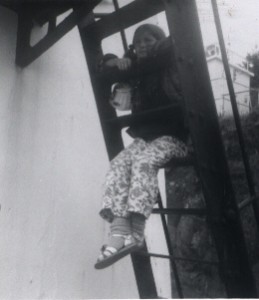
“Mother and Son/Dad playing with his new baby/Mother playing with her baby/Couple with their daughter/Father holding son laughing.” Seemingly unending joy here. The acapella-voiced ritual petitions go on and on. And on. But it’s all idealized. Something is wrong. It’s too perfect. Rachel Taylor Brown does not typically accede to the grandeur of such grandly grand grandiosity. There’s way, way too much smiling here. Something is very, very wrong, indeed.
And we find out just what that is on the subsequent track, “Family.” As the title might imply, this song would seem to complete the (life) sentence begun with the very first song: “We’ll Have A.” According to my (now copyrighted) screenplay, this song would also be called “Miss Cootie’s Lament,” and would provide something of a back-story as to her arrival into the purview of this tragic tale of forbidden love.
The setting, initially heavy on the six-piece back-up vocals, elicits a familial mood akin to those frequently created by the semi-retired but sorta still around Roche Sisters. “Family–you were so good to me/I had to run away from/Family–oh no don’t run after me/Like I know you wanna.” Well, there you go.
But it doesn’t take very long before the child-like piano scales behind the cheery deliveries get dark and the atmosphere turns sinister through the Jack and Jill sequence. From there, the emotions overflood the damn and the Ives-ish, dueling rounds eddy and spill all crazy like, warily down the stream.
The upshot of the story (if I may) seems to be that “Jack,” Mister Mount Athos, may have continued his journey on up the hill to pursue matters of higher importance (to him), while kicking “Jill,” our Miss Cootie, to the curb and off the peninsula. We have to try to tie these loose threads together as best we can, given our arcane perspective. Whatever it is, the situation is rather chaotic and the vocal themes seem (by deign of composition) to represent two distinctly opposing characters singing at each other, not with each other. And who hasn’t been there a time or two? Hoo boy!
 Rachel gives “Men in War” a straight-forward treatment—just piano and her voice, punctuated in places by Landsverk’s lone viola. It’s a torchy war song in the manner of something possibly emanating from the ‘40s. Maybe something Doris Day might have, swooning earnestly, crooned to the boys across the pond. “The things we say to men in war to keep them moving forward/The world will never be the same if you do not go warward.” Well if that don’t launch a thousand ships I don’t know what will.
Rachel gives “Men in War” a straight-forward treatment—just piano and her voice, punctuated in places by Landsverk’s lone viola. It’s a torchy war song in the manner of something possibly emanating from the ‘40s. Maybe something Doris Day might have, swooning earnestly, crooned to the boys across the pond. “The things we say to men in war to keep them moving forward/The world will never be the same if you do not go warward.” Well if that don’t launch a thousand ships I don’t know what will.
The very brief “Bird” is a haunting restatement of the intro to “Robin,” but portends foreboding. In my context it means Mister Mount Athos might have gotten hit by a big rock while marching around at war. The beautiful “One Brave Soul” could be construed as a hymn to our fallen soldier. But it’s a not. It’s a wish upon a star.
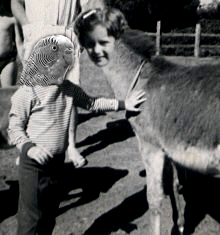
“All I need is that one brave soul, who’ll be kind/I am sure that’s all it takes/Is one small word, I know,/From one brave soul.” That’s a tough one, because the brave souls are the ones sent warward, but you get the point. This is a touching little song, just Rachel and her piano and would seem to be the epilogue to our fateful, Shakespearian tragedy: Freed by Fate from her loveless, abusive relationship, Miss Cootie is hoping for a better life for herself and Baby Tuckoo. The end.
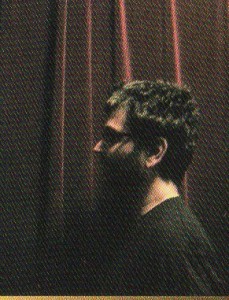
There is nothing exactly pretty here. Oh, it’s played impeccably and recorded so lovingly and faithfully, that it sounds positively analog! Rachel co-produced the album with the brilliant Jeff Saltzman and made a conscious choice to employ a minimum of effects—if any at all.
For that reason, you can hear every vocal nuance, every change in timbre, each shift in color and shade as if you are sitting there in the room—an overused cliché, but actually true in this case, thus pretty hard to avoid.
But, here’s the deal with this album: every time you think you know where something is going, musically, be prepared for a sharp turn into the ditch. And that turn is intentional. Are you happy now? And to reinforce the intentionality of her purpose, Rachel Taylor Brown writes incredibly complex lyrics, full of the dense thickery of the human condition and the moist, fetid psychology that seeps inevitably through it.
Were she given a choice, I think most of Rachel’s songs would last about two and a half minutes. That’s certainly MORE than enough time for her to totally fuck with your head—musically and intellectually, so why take the carriage for unnecessary extra laps around the park, eh? It’s overkill. That’s meant as the sincerest form of flattery in this instance, brevity being the soul of something or other. I never learned that one. Seemed not to apply to me.

Anyway. It’s quite possible that my portrayal of this album as a rock opera is entirely fictive. But, it’s more likely that I’ve got the wrong rock opera in mind, not that Falimy is not one. The repeating piano exercises that begin many of the songs invoke Little Janie Bailey in It’s A Wonderful Life. So it may be true that the authentic view here of the “family” in question, as portrayed by Ms. Taylor Brown, is perhaps less flawed than from my jaundiced perspective. But I kind of doubt it. I mean, I’ve listened to all her other albums.
Bottom line is: Rachel Taylor Brown is brilliant. Her musicianship is brilliant. Her poetry is brilliant. She makes brilliant, very unique production decisions, unlike any you’ve ever heard before, though the outcome is typically familiar. Comfortable. Everything seems okay. Her songs are catchy and meaningful and artfully crafted, but they’re just twisted as hell! I don’t know how to say that any more politely.
 Imagine if Fiona Apple went off her medication. No. No, don’t imagine that. That’s too harsh. Imagine if Tori Amos needed medication but was off it. That’s what this material, these songs, these productions, this album, sounds like, though it pretty much doesn’t sound like Tori Amos at all—which is exactly my point.
Imagine if Fiona Apple went off her medication. No. No, don’t imagine that. That’s too harsh. Imagine if Tori Amos needed medication but was off it. That’s what this material, these songs, these productions, this album, sounds like, though it pretty much doesn’t sound like Tori Amos at all—which is exactly my point.
It takes Rachel Taylor Brown a while to conceive and produce an album. A couple years or so. There’s a reason for that. It probably takes her a while to recover from the primal therapy of the undertaking after she’s gone into the studio. But don’t be fooled. She knows exactly what she’s doing and she is seriously messing with you.


